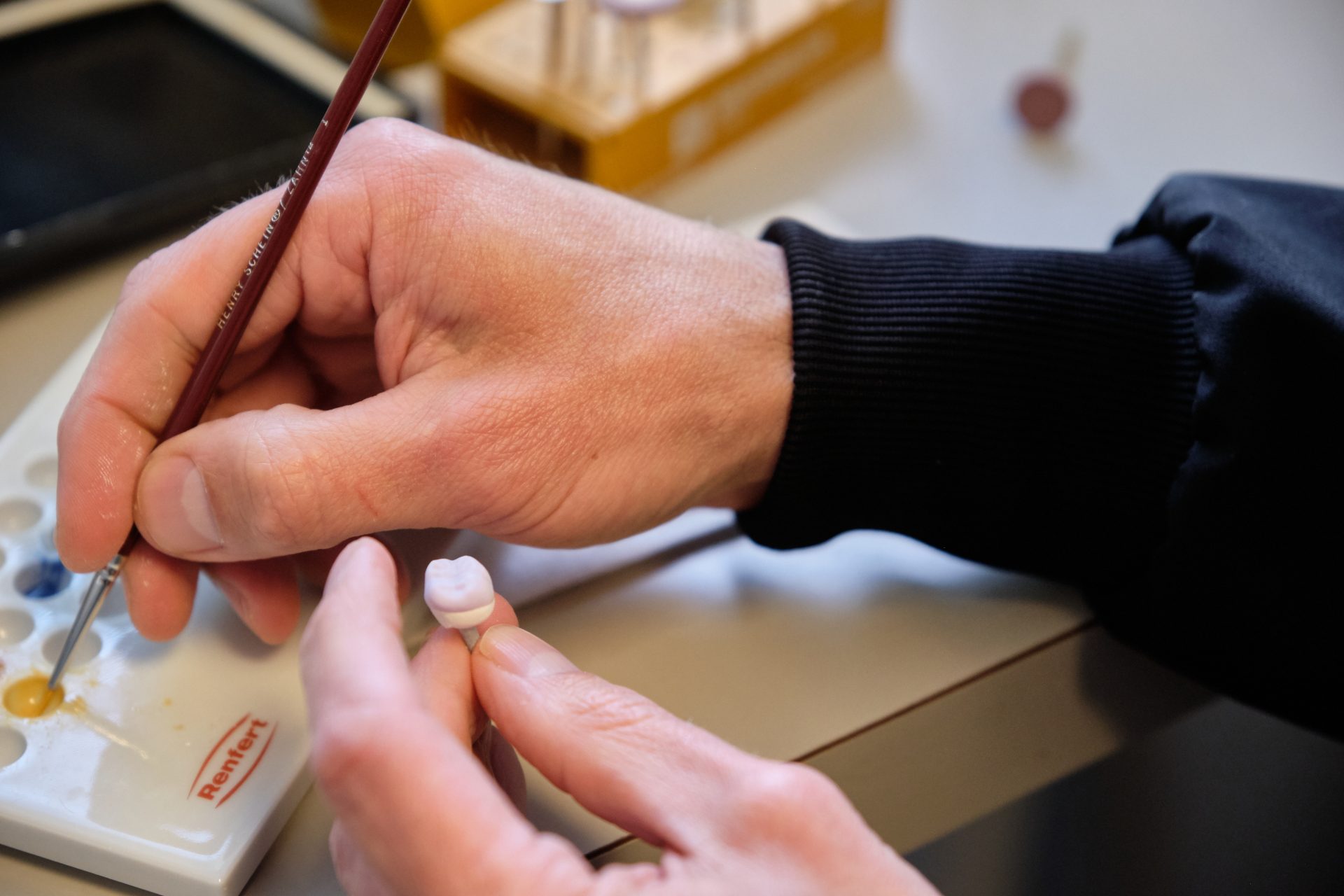
How Do I Pick From All Of The Different Kinds Of Toothpaste?
January 4, 2019
The Correlation of Gum Disease and Heart Disease
February 12, 2019Parents often ask us about how they can ensure their children grow up with healthy teeth. As a parent, you may teach your child good oral health habits and seek age-appropriate dental treatment. This strategy prevents or manages pediatric dental issues.
Whether your child is teething or getting their first permanent teeth, your dentist is your ally who shares your desire for healthy teeth and gums. By finding the right dentist, you have an experienced professional to help your family every step of the way.
Oral Care For Newborns On Up
It all starts with home care. From infancy through adulthood, your child has different oral health needs at each stage of development.
- Newborns: Use a wet cloth or soft pad to wipe the gums and the mouth clean. Watch our Facebook video below to learn about the products that you can use to clean your baby or small child’s gums and teeth.
- Babies and small children under 3 years old: Use a soft child-sized toothbrush and a tiny amount of toothpaste to gently brush the teeth. One guideline is to use a dab of toothpaste similar in size to a grain of rice. Avoid fluoride toothpaste until your child is old enough to spit it out.
- Children 3 – 8 years old: Use a soft-bristled toothbrush and a pea-sized amount of toothpaste to carefully clean the teeth. Spend around two minutes to ensure you brush all the teeth. Take the opportunity to model healthy habits. Help your child brush their own teeth as soon as they are able, but supervise and assist until around the age of 8.
- Children 8 and older: At this age, your child may brush and floss independently. Listen to your own instincts as a parent and supervise as needed while your child makes the transition to managing their own dental care. A timer may remind your child to spend at least two minutes brushing to ensure they brush all their teeth. Some kids enjoy positive reinforcement through charts with stickers or stars whenever they meet their dental hygiene goals.
Remember to avoid products containing fluoride until your child is old enough to understand not to swallow it. If you feel uncertain about which dental care products are safe and effective, watch our Facebook video covering basic oral care for babies and small children.
Home care is an important habit to teach your child. Be sure to be a good role model by also taking care of your own oral health. By learning to care for their own teeth, your child may avoid painful cavities and prepare for a lifetime of healthy smiles.
Another way to promote healthy teeth is to limit your child’s sugar consumption. Consuming candies, juices, and sweets throughout the day increases the likelihood of tooth decay and cavities. Limit sweet treats to a specific time and be sure to brush those teeth afterward. Also be aware that sweetening a toddler’s pacifier with honey or juice also damages newly erupting baby teeth.
While consistent hygiene is essential, professional dental care is also crucial for preventing and treating any pediatric dental issues.
Your Child’s First Dental Visit And Beyond
The American Academy of Pediatric Dentistry (AAPD) recommends that a child first visits a dentist by 12 months or within six months of receiving the first tooth. At around six months of age, babies first primary tooth usually emerges. Unfortunately, many parents wait longer than recommended and often take their child for the first dental visit around the age of two.
If you happen to be behind schedule, be sure to make an appointment with a pediatric dentist soon. Early dental exams help identify pediatric dental issues and ensures early treatment when appropriate.
Your dentist will then work out a plan of when your child should see the dentist. The plan will track your child’s development.
- Ages 2-3: During this phase, your dentist will help your child and you become acquainted with healthy habits like brushing the teeth.
- Ages 4 -6: Around this time, your child may have their first dental X-rays taken. This helps the dentist see how the teeth are coming in and gauge their development.
- Ages 7 – 12: Your dentist will work with your child to control plaque and to care for their newly erupting adult teeth.
Be sure to follow the plan the dentist recommends for your child. Your dentist may also suggest other preventative treatments like sealants. If the dentist identifies any pediatric dental issues, early treatment keeps your child’s teeth healthy.
Tips To Help Prepare Your Child For Their Dental Appointment
Many people of all ages feel anxious about dental visits. As a parent, you can help your child have a positive experience by gently reassuring them. The best strategy is to start young. Ideally, your child’s first visit should happen around the age of 1. Your child may grow up feeling at home with their pediatric dentist.
Many children actually enjoy dental visits because they like learning about their teeth. Some dentists even give fun tooth-friendly “treats” like sugar-free gum, colorful toothbrushes, or stickers. Be sure to choose a dentist who relates well to children.
As a parent, your own attitude towards the dental care sets the scene. When you explain where you are going, be positive and upbeat. Be sure to plan the day so you are not rushing to get to the appointment or arriving late. Arrive a little early so your child gets a chance to relax before the appointment.
When you talk about the appointment, stay positive and upbeat. Avoid giving too many details or using words that imply pain. Also, avoid making promises that you can’t keep like insisting “everything will be fine.” The dental team is used to talking with children and families about dental care in a way that suits each age and stage of development. As much as possible, leave those details to them and take their cue for any followup conversations at home.
Avoid Pediatric Dental Issues With Southview Dentistry
With consistent dental hygiene and professional care, pediatric dental issues shouldn’t interfere with your child’s health and happiness. If you haven’t already, find a dentist who works well with children. This dentist and staff will be your ally in your child’s journey to a healthy smile.
Charlotte residents trust Southview Dentistry with their children’s oral health. If you are looking for a dentist for your child, do not hesitate to call and schedule an appointment today.




